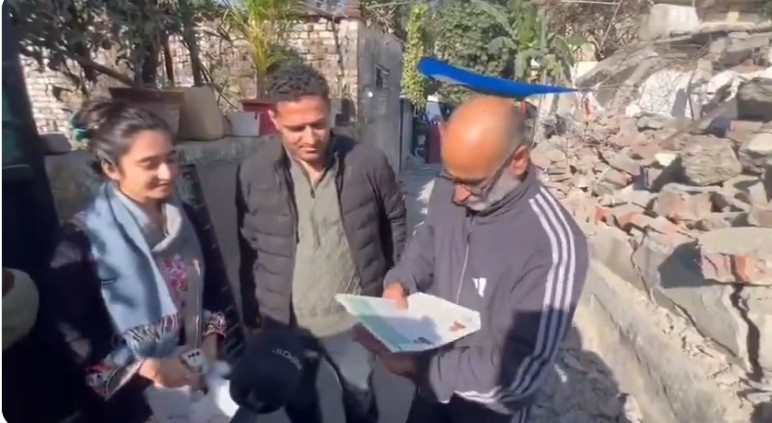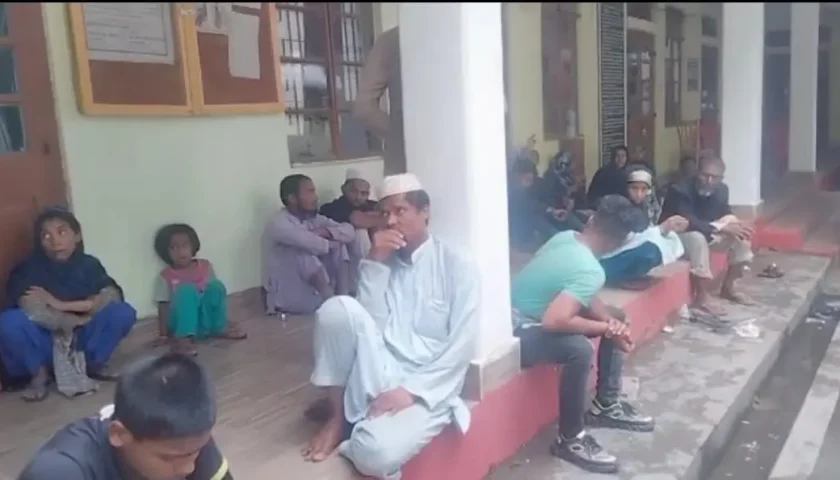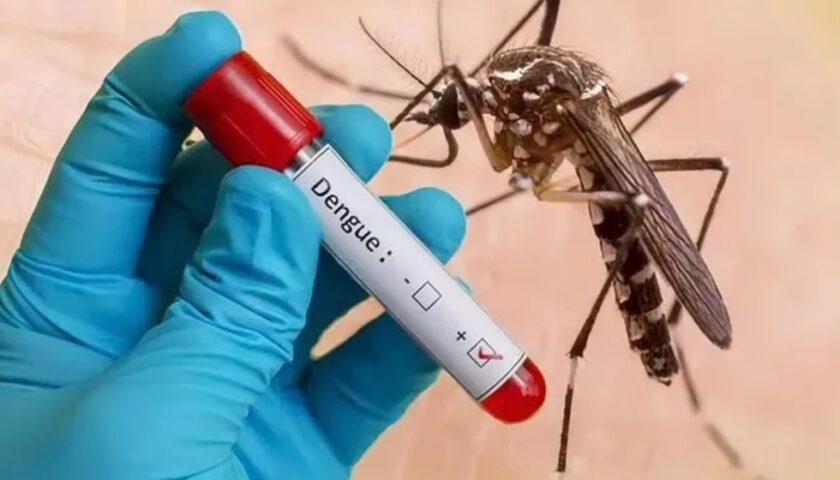The eight-year-old girl was continuously drugged and was gang-raped thrice by her abductors, including a special police officer, inside a temple.
The charge sheet filed by the crime branch of the Jammu and Kashmir (J&K) police before the chief judicial magistrate in Kathua district on the rape-murder of an eight-year-old girl reveals the depravity of the crime, which has polarised the Jammu region on communal lines.
The girl, who belonged to the nomadic Muslim Bakarwal community, was kidnapped on 10 January while she was out grazing horses in a pasture near her home, held captive in a temple, sedated with a drug and raped repeatedly in a plot hatched by the main suspect, retired revenue department official Sanji Ram, according to the charge sheet filed on Monday night.
Sanji Ram’s motivation: to cause the Bakarwals to panic and move out of Rassana village in the Hiranagar tehsil of Kathua district. He enticed his nephew, a school dropout, into committing the crime, said the charge sheet.
The nephew was first identified as a juvenile although the charge sheet said a DNA test showed him to be 19-years-old.
After the girl was kidnapped, she was held in a temple, identified as Devasthan, run by Sanji Ram, drugged constantly and subjected to multiple rapes including gang rape. The nephew informed Sanji Ram’s son Vishal Jangotra in Meerut over the phone about the abduction of the girl and asked him to come back “if he wanted to satisfy his lust”.
The girl was held captive in the temple until 14 January before the nephew strangled her to death and bludgeoned her with a stone to make sure she was dead, said the charge sheet. Before she was killed, one of the accused asked his accomplices to “wait” because he also wanted to rape the girl before she was killed, the charge sheet said. Her body was found on January 17 not too far from Devasthan.
A police sub-inspector, a head constable and two special police officers were charged along with Sanji Ram, his nephew, his son and a friend of the nephew’s. The police were supposed to help destroy evidence and cover up the crime in exchange for bribes.
According to the charge sheet, “whatever surfaced in the course of investigation leads to the irresistible conclusion” that the eight “undoubtedly committed offences” including kidnapping, wrongful confinement, gang rape, murder and tampering with evidence.
It also mentions that investigators along with forensic experts and a first class executive magistrate visited the crime scene and a minute examination of the locations, including Devasthan, led to the recovery of blood stained wooden sticks and hair strands.
A few hair strands recovered from Devasthan and the nearby forest where the body was dumped, were sent to New Delhi for DNA profiling. One of the strands from Devasthan matched with the victim’s DNA profile.




